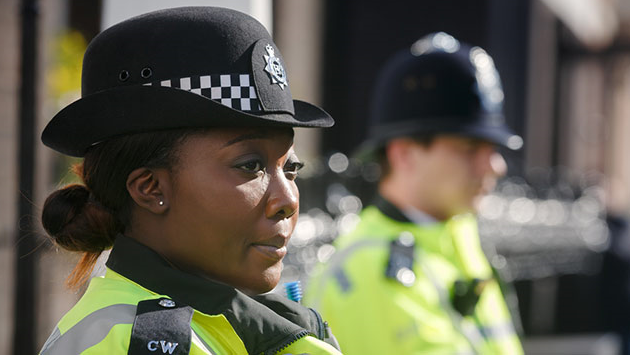Image Source: Personnel Today
July 12, 2024 Story by: Editor
Black women are three times more likely to be rejected for jobs at UK police forces, despite claims of gender parity in recruitment.
During the Conservative-led Police Uplift program, which aimed to recruit 20,000 officers over three years and concluded in March 2023, UK police forces reported equal success rates of 20% for male and female applicants. However, data obtained by Media Storm through Freedom of Information requests reveals that while one in five white female applicants was successful, only one in 14 black women was accepted.
The data underscores the importance of considering the intersections of gender and race, particularly when it comes to black women. Media Storm’s findings highlight how positive discrimination for white women has masked severe discrimination against black women, allowing it to persist unaddressed.
Criminologist Dr. Marina Hasan, speaking on the Media Storm podcast about ‘misogynoir’—the specific prejudice against black women—stated, “Race is always seen as black men’s issue, gender is always seen as white women’s issue. So black women always fall through the cracks.” Her research documents specific forms of bullying and harassment experienced by black women in the workplace, including subordination, sexualization, distrust of their accounts, stereotyping, and disparities in disciplinary and misconduct hearings.
In response to these issues, Marcia Ore and Karen Geddes, two of the few black women who have endured 30 years working in UK police forces, launched the first national policing conference specifically for black women this year. The “Women in the Shade” conference aims to amplify black women’s voices. “We’re absolutely unapologetic about that,” Marcia told Media Storm.
Marcia recalled the audience’s reaction to Media Storm’s findings: “to gasps around the room.” For many attendees, predominantly black women, the data provided clear, statistical validation for experiences they had long suspected but were often gaslit into doubting as the sole black woman in their departments.
Despite not explicitly excluding white people in their marketing, the conference’s focus on black women resulted in an audience largely composed of black women. “It’s interesting,” Marcia observed. “What we said was that it was focused on black women.” This highlights the broader societal issue of viewing intersectional discrimination as a marginal issue for those on the margins.
Marcia emphasized that addressing these issues requires collective effort: “We’re not excluding our white colleagues, black men, white men, or anybody else, because we cannot do this alone. If we want to make improvements in terms of equality and diversity and equity, then it has to be everyone pitching in.”
One woman who has faced severe police misogynoir yet made significant contributions to combating it is Mina Smallman. Her daughters, Nicole Smallman, 27, and Bibaa Henry, 46, were murdered in June 2020, and their bodies were found in Fryent Country Park, Wembley. Two Metropolitan Police officers were jailed for taking photos of their bodies and sharing them in degrading WhatsApp messages. Mina has continually highlighted the racist police neglect and abuse she experienced throughout this ordeal while advocating for unity in addressing these issues.
“I don’t want any sides,” she told Media Storm. “This affects all of us: all of us were born from a woman, all of us have female members in our family. We’re all invested in the safety of women and girls. That’s my only agenda.”
While Mina has broadened her advocacy to include all women and girls, she remains acutely aware of the unique struggles faced by women of color. “My sisters are the lowest on the rung, be it health, be it work, be it whatever. They are my people. I want it to be remembered that a woman of color, a girl of color—we are the last to be considered in every aspect of this world.”
Forgiving the man who murdered her daughters, Mina has not forgiven the institutions that failed to protect them. “The institutions that are failing, and feel it’s appropriate to cover up the truth… God hasn’t given me the gift of freedom from that because he needs me to have that fire in my belly.”
Mina has turned her pain into a campaign for change. Her memoir, “A Better Tomorrow: Life Lessons in Hope and Strength,” will be released in July. Despite her personal tragedies, Mina sees this moment as an opportunity for meaningful change. “We have an opportunity, a moment in time, where police officers now have firsthand experience of what it feels to be a black person, because they now know what it feels like to be under unfair scrutiny. Not trusted. Everyone’s watching you, everyone’s deciding whether you are good or bad. This could be the pivotal point where we deliver the best support and be the best human beings we can be.” Source: Byline Times

















